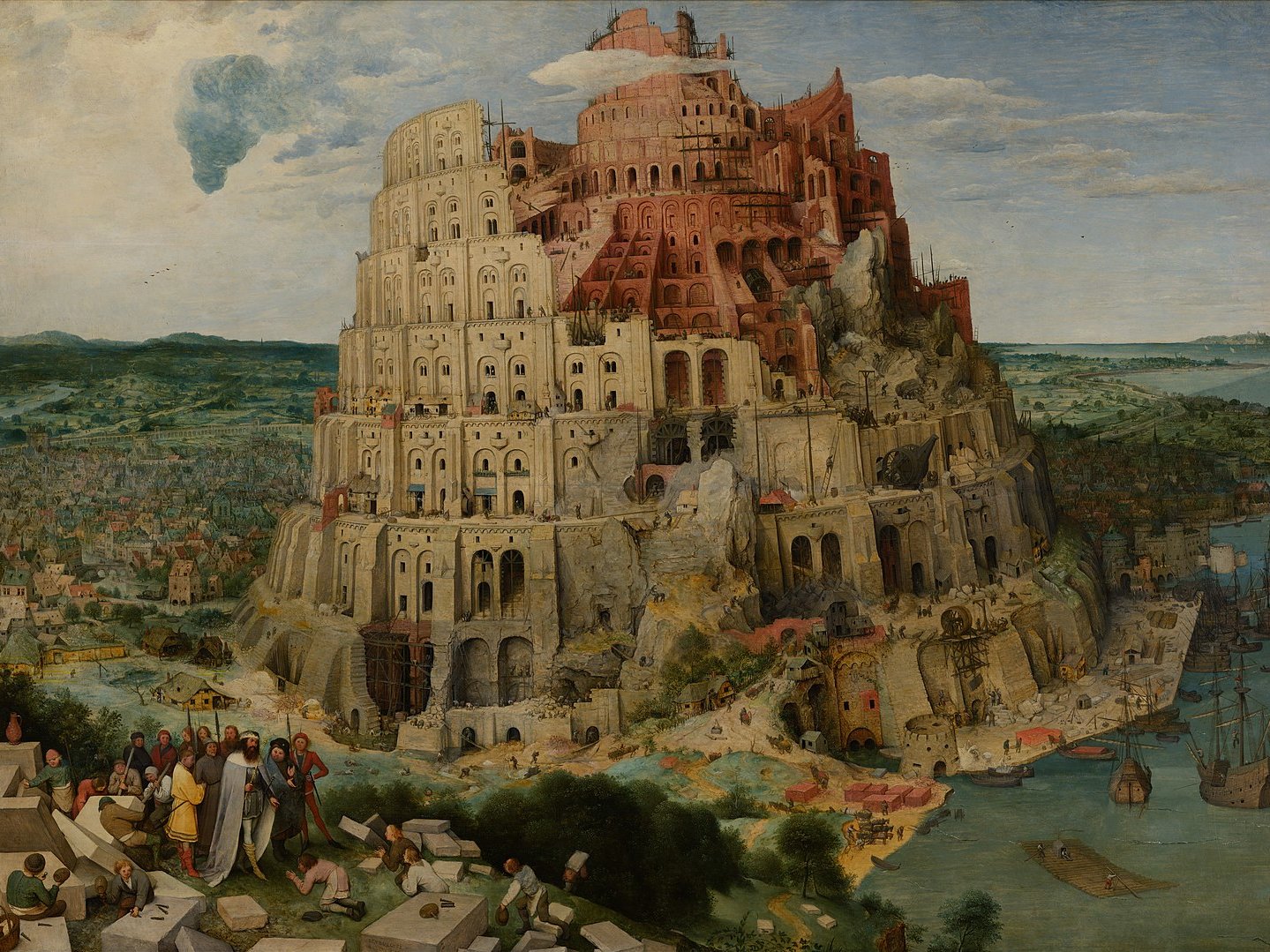Pascale Siegrist joined the GHIL in October 2020. She is an intellectual historian interested in the margins of the canon; her first book project deals with the ‘global’ thought of fin-de-siècle anarchists. At the GHIL she is developing a new project on the worlds of invented languages. Prior to coming to London, Pascale was a Fung Fellow at Princeton University and a Max Weber Fellow at the European University Institute in Florence. She holds a BA from Paris-IV Sorbonne, an MPhil in Political Thought and Intellectual History from the University of Cambridge and a PhD from the University of Konstanz.
Research Project
A Secret Artifice
Language Invention in the Age of Global English

The case of artificially constructed languages offers insights into the world – and self-images of their respective community of speakers. Crucially, this also holds for the tacit assumptions regarding the status of the creators’ mother tongue. In the short twentieth century, native speakers of English were exceptionally prolific in the art of language invention. Looking at examples from Britain, the (post-)colonial world, and the US, and ranging from literature and poetry to philosophy and philology – and more often than not reaching across such boundaries – I argue that these initiatives were all in their own way responses to the experience of linguistic globalisation. The imagined alternatives to English thus present a new way of looking at the intellectual making of the Anglosphere.
Responsibilities at the GHIL
- Research Fellow in Modern History
- Reviews Editor for the GHIL Bulletin
- Spokesperson for Academic Staff
Research Interests
- Intellectual history
- History of anarchist and socialist thought
- Global and transnational history
- History of geography, linguistics and philology
Education and Academic Background
| 2020 – | Research Fellow, German Historical Institute London |
| 2019 – 2020 | Fung Global Fellow, Princeton Institute for International and Regional Studies, Princeton University |
| 2018 – 2019 | Max Weber Postdoctoral Fellowship, European University Institute, Florence |
| 2013 – 2018 | PhD in History, University of Konstanz |
| 2011 – 2012 | MPhil in Political Thought and Intellectual History, University of Cambridge |
| 2007 – 2010 | BA (Licence) in History, Université Paris IV-Sorbonne |
Fellowships, Grants and Scholarships
| 2018 | Mercator-Fellowship, Graduate School ‘Global Intellectual History’, Freie Universität Berlin |
| 2016 | International Mobility Award, German Historical Institute Paris |
| 2014 | Research Stipend, Russian State University for the Humanities (RGGU), Moscow |
| 2010 – 2011 | International Convention Grant, Moscow State University (MGU) |
Memberships and Affiliations
- Verband der Historiker und Historikerinnen Deutschlands
- Nineteenth-Century Studies Association
- Anarchist Studies Network
- Deputy editor for the Journal of Political Ideologies Blog ‘Ideology, Theory, Practice’
Publications
Articles and Chapters
Entries for „Cosmos“ and „Nature“, in Pauline Couteau, Nicolas Éprendre, Federico Ferretti, Philippe Pelletier (Hg.), Abécédaire Reclus: Les 101 mots d’Élisée (Paris, 2024), 99-102 and 296-300
‘A Common Vision of Geography? Pëtr Kropotkin and the Royal Geographical Society, 1876–1921’, German Historical Institute London Bulletin, Vol. XLVI, No. 1 (May 2024), 26–47 (Read here)
‘Cosmopolis and Community. Élisée Reclus and Pëtr Kropotkin on Spatial and Moral Unity, 1870s to 1900s’, Global Intellectual History, (online, 2020) (Read here)
‘The Roots of Radical Geography? Oder: Reclus und Kropotkin ernstnehmen’, in Germaine Spoerri and Ferdinand Stenglein (eds.), Anarchistische Geographien. Beiträge zu den Radical Geographies. Reihe Raumproduktionen: Theorie und Gesellschaftliche Praxis, Bd. 39 (Münster, 2021), 230-51.
‘Historicising ‘Anarchist Geography’. Six Issues for Debate from a Historian’s Point of View’, in Gerónimo Barrera della Torre, Federico Ferretti, Anthony Ince and Francisco Toro (eds.), Historical Geographies of Anarchism. Early Critical Geographers and Present-Day Scientific Challenges (London, 2017), 129-150.
‘Reading Reclus in the Light of New Spatial History’, in Evgenii Iasin (ed.), XVI Aprel'skaia mezhdunarodnaia nauchnaia konferentsiia po problemam razvitiia ekonomiki i obshchestva (Moscow, 2016), vol. 2, 272-79.
Reviews and Miscellaneous Publications
Edition
(with Anton Kotenko, eds.) ‘Global'na istoriia ukraïns'koho XIX stolittia: listi Mikhaila Drahomanova do Fieliksa Volkhovskogo, Maksa Netlau, Gastona Pari ta Valer'iana Smirnova’, [‘The Global History of Nineteenth-Century Ukraine: Mykhailo Drahomanov’s Letters to Felix Volkhovskii, Max Nettlau, Gaston Paris, and Valerian Smirnov’] in Spadshchina – Heritage. Literaturne dzhereloznastvo. Tekstologiia (2019:13-14), 473-531.
Reviews
Carolin Kosuch (Hg.), Anarchism and the Avant-Garde: Radical Arts and Politics in Perspective, in Quellen und Forschungen aus italienischen Archiven und Bibliotheken 101:1 (2021), 825-7.
Federico Ferretti, Anarchy and Geography. Reclus and Kropotkin in the UK, in Anarchist Studies 29:2 (Autumn 2021), 106-8.
Constance Bantman and Bert Altena (eds.), Reassessing the Transnational Turn. Scales of Analysis in Anachist and Syndicalist Studies, in Comparativ (2018:02), 110-12.
Alte Weltordnungen. Review of Jens Steffek and Leonie Holthaus (eds.), Jenseits der Anarchie. Weltordnungsentwürfe im frühen 20. Jahrhundert, in Neue Politische Literatur, (2014:03), 486-87.
Acts of Subversion. Review of James C. Scott, Two Cheers for Anarchism. Six Easy Pieces on Autonomy, Dignity, and Meaningful Work and Play, in The Cambridge Humanities Review, (2013:01), 15-16.
Blog posts
Contributions to the Fung Fellows Blog Site Thinking Globally, Spring 2020 (Read here)
‘Anarchistische Weltanschauungen’, Hypothèses. Das 19. Jahrhundert in Perspektive, 12 May 2016 (Read here)
‘Putting Anarchism in Its Place. The Revolutionary Geographies of Elisée Reclus, Pëtr Kropotkin and Their Circle, c. 1870-1914’, Interconnected. Actors, Objects and Ideas on the Move, 12 May 2015 (Read here)
Podcasts
Interview with Stefanie Gänger, ‘What is a fever?: Examining illness, 1770-1830’, in: Germany Historical Institute London Podcast, 5 September 2025 (Listen here)
Interview with Marlene Hausteiner, ‘Federations, constitutions and the German Basic Law’, in: German Historical Institute London Podcast, 23 May 2024 (Listen here)
 Dr Pascale Siegrist
Dr Pascale Siegrist